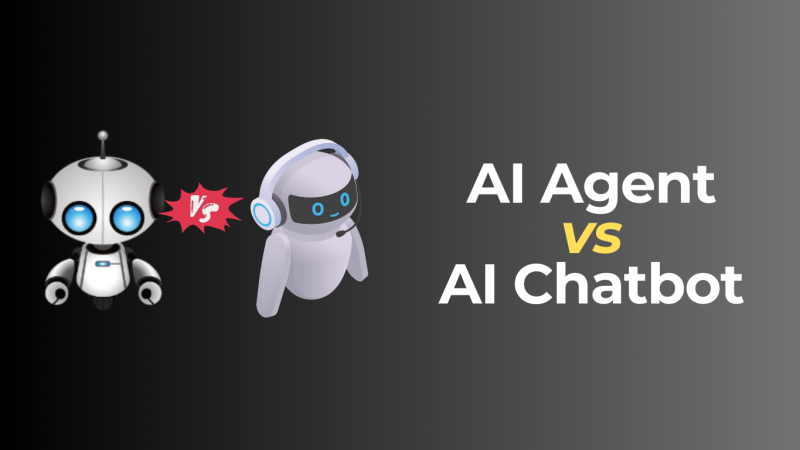C++ Build Tools: The Most Innovative Things in 2022

It wouldn’t be an exaggeration to say that C++ build tools have quite a long and dynamic history, by the standards of the technology industry of course. First solutions for fast and simplified C++ development became available soon after the original commercial implementation of C++ was released in 1985.
When it comes to the history of rapid C++ development, we know it better than anyone. Embarcadero has been a major contributor to the evolution of C++ build tools since the late 1980s. Actually, C++ Builder, our rapid application development (RAD) environment, is celebrating its 25th anniversary in March of 2022!
You can learn more about the history of the C++Builder and what impact this tool had on C++ application development on a designated C++Builder 25th anniversary website.
Is C++ Builder at the forefront of C++ build tools innovations?
What are 6 key innovations of C++ build tools in 2022?
In this post, however, we would like to talk about the present and future of C++ build tools. The solutions for rapid C++ applications development continue to transform and evolve along with the software industry as a whole.
Here are six key trends and innovations in the C++ build tools that we consider most interesting. They also potentially have the biggest impact on C++ development in the age of Industry 4.0 and digital transformation.
Advanced and responsive user interfaces
Are there new features for boosted developer productivity and faster delivery?
Latest C++ development standards and C++17 support
What about easy cross-platform deployment?
Are there collaboration features?
Version control
Advanced and responsive user interfaces
You don’t need to be a developer to recognize that app UIs have come a long way over the last decades. Back in the late 1980s and early 1990s, at the dawn of the digital revolution, functionality and performance of a software product were pretty much the only two aspects considered important. However, programmers were making user interfaces for programs and apps in line with their understanding of what the user-facing side of the product should look like.
The standards of user interfaces in software products have gone through a tremendous transformation over the years. Today, users have incomparably higher expectations for design, interface, and other elements of user experience for both consumer and enterprise IT solutions.
This is also the case for C++ build tools and rapid development environments. Modern-day solutions are actively expanding their features and capabilities for visual design creation, allowing users to easily drag and drop visual and non-visual components from the palette when creating an app. The best C++ build tools in 2022 not only allow developers to design new apps rapidly, but also enable native performance and responsive platform-aware UIs.
Are there new features for boosted developer productivity and faster delivery?
A combination of innovative features and technologies makes it possible for modern-day C++ build tools to provide previously unseen levels of developer productivity. As a result, organizations using up-to-date C++ development solutions are able to deliver new projects even faster.
As an example of development productivity-boosting innovations, Embarcadero’s C++ Builder comes with an award-winning VCL framework for high-performance native Windows apps and powerful FireMonkey (FMX) framework for cross-platform UIs. Those two frameworks, along with visual design tools, allow enterprise teams to deliver projects 5x faster than competing C++ build tools.
Latest C++ development standards and C++17 support
Another very distinctive trend in C++ build tools is the continuous shift to C++17 and the support of the latest C++ development standards that were introduced with that version. C++17 introduced a large number of new features and removed several that were considered to be outdated or unnecessary.
In C++Builder’s case, our solution features full support of C++17 innovations and incorporates a number of latest C++ development tools. This includes a Clang-enhanced compiler, Dinkumware STL, and easy access to Boost, as well as common libraries such as SDL2.
What about easy cross-platform deployment?
Simplified cross-platform deployment of newly-created software products and apps have always been one of the objectives of C++ build tools. But only the latest innovations truly enabled developers using solutions such as C++Builder to create both desktop and mobile apps that can be deployed to Windows, iOS and other modern-day platforms without the need to make any changes in the codebase.
Some innovations in this field are the ability to deploy files directly from the IDE to various platforms. This includes rapid deployment to remote machines. Also, the support of defining files to deploy by platform and building configurations for debug or release.
Are there collaboration features?
Extended user collaboration capabilities are another innovative trend in C++ build tools. Collaboration features allow both independent developers and teams to create better products faster. This is done by working on the same code simultaneously, exchanging messages and comments without leaving the IDE, and being updated about changes made in the code in real-time. The implementation of collaboration features in rapid development solutions drives deeper code understanding. Also, it helps improve testing, and ultimately enables the development of better products faster.
Version control
Additional development performance boosters are version control features that allow users to track and manage changes using third-party systems. These include Subversion, Git, Mercurial repositories, etc. Having advanced and efficient version control features at their disposal, developers can be even more productive. It also minimizes the time needed for version control across platforms.
Is C++ Builder at the forefront of C++ build tools innovations?
C++ Builder is a leading rapid C++ development solution that allows users to build native Windows C++ and iOS apps up to 10 times faster with less code compared to alternative tools.
Here are some of the most innovative features of C++ Builder.
Advanced design capabilities:
- Visual UI components from multiple certified partners
- Support of using FMX to create cross-platform apps using the same code base
- User interface elements can be connected to data sources using the LiveBindings Designer
- Designs can be validated in real time using Live On-Device Preview to broadcast the active form to multiple devices simultaneously
- Resolution-aware components allow to build fully responsive designs for desktop, tablets, and smartphones
Fast and accurate debugging features:
- Integrated cross-platform native debugging on Windows and iOS
- Integrated toolchain bringing the designer, compiler, and debugger together into a single development environment
- Conditional breakpoints to quickly pause program execution at a specified location or when a particular condition occurs
- Breakpoints, stack exploration, tool tips and expression evaluation on local and remote machines with live debugging across all deployment platforms
Development productivity boosters:
- C++ Code Formatter: automate the layout of your C++ code using clang-format
- Customization of the IDE for Delphi and enhanced C++
- Faster compiles with highly optimized compilers for every platform
- Native, high-speed direct access to InterBase, SQLite, MySQL, SQL Server, Oracle, PostgreSQL, DB2, SQL Anywhere, Advantage DB, Firebird, Access, Informix, MongoDB, and more
- Support of popular libraries such as Boost, Eigen, and ZeroMQ plus leverage a broad range of community tools and libraries
- Integration with version control systems including Git, Subversion and Mercurial
Want to know what the cutting edge of C++ development is like?
In case you would like to try and test all the features and capabilities of modern-day C++ build tools first-hand, there is a trial version of C++ Builder available for free for 30 days. All you need to start the evaluation is to complete a website form.
Additionally, the developers of C++Builder provide live demos of this product for those potential customers who want to see how the innovative features of C++Builder can be used by experienced users.






